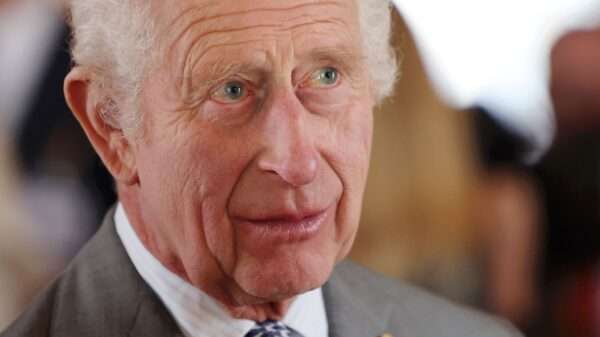The British government, under the leadership of Prime Minister Keir Starmer, is reportedly considering a comprehensive smoking ban that could extend to pub gardens and outdoor venues. This move comes in response to the “huge burden” that smoking places on the National Health Service (NHS). While previous governments have targeted indoor smoking in public spaces, this potential ban represents a significant step forward in efforts to curb smoking-related harm across the country.
The discussion of an extended smoking ban is set to be a focal point in the upcoming King’s Speech at the opening of Parliament, scheduled for July. The King’s Speech will likely highlight the resurrection of Rishi Sunak’s previously shelved smoking ban as a central policy initiative. The previous iteration of this ban, introduced during Sunak’s time as Prime Minister, faced political hurdles and was temporarily put aside before the last election. Now, under Starmer’s government, there appears to be a renewed determination to tackle the public health crisis associated with smoking, potentially pushing the policy further than Sunak’s original proposal.
The consideration of such a ban is rooted in the growing concern about the health impacts of smoking and the consequent strain on the NHS. Smoking is a major cause of preventable disease and premature death, and it has long been a public health challenge in the UK. Despite ongoing efforts to reduce smoking rates through taxation, public health campaigns, and restrictions on where smoking is permitted, the habit continues to affect millions of people. Smoking-related illnesses, such as lung cancer, heart disease, and respiratory issues, place a significant financial burden on the NHS, costing billions annually.
By potentially expanding the ban to include pub gardens and outdoor venues, the government would be aiming to further limit exposure to secondhand smoke and discourage smoking altogether. The logic behind such a policy shift is that even outdoor exposure to secondhand smoke poses health risks, especially for children and individuals with pre-existing health conditions. The move would also aim to create a more smoke-free environment in public spaces where people gather for leisure and social activities.
Critics of this proposed expansion argue that such measures could impact the hospitality sector, particularly pubs and outdoor venues that rely heavily on foot traffic and customer engagement. Pub gardens, often a popular spot for smokers, could see a decline in patronage if a smoking ban were enforced. There is concern that this could lead to reduced revenues for businesses that are already grappling with economic pressures, especially in the post-pandemic landscape. Opponents of the ban also raise concerns about the perceived infringement on personal freedoms, arguing that adults should have the right to smoke in designated outdoor areas without government interference.
However, proponents of the ban argue that the health benefits far outweigh these concerns. They point to evidence suggesting that smoking bans have been effective in reducing smoking rates, lowering the incidence of smoking-related illnesses, and improving public health outcomes overall. By extending the ban to outdoor areas, supporters believe the government would be sending a strong message about the dangers of smoking and prioritizing the health and well-being of the population. Moreover, they suggest that any economic downturn faced by the hospitality industry could be offset by a healthier, more productive workforce and reduced healthcare costs in the long run.
As the July opening of Parliament approaches, all eyes will be on the government’s policy announcements in the King’s Speech. It is expected that Keir Starmer’s administration will outline its commitment to tackling smoking more aggressively, perhaps going beyond what previous governments have considered. If the proposed smoking ban is extended to include pub gardens and other outdoor venues, it could mark a pivotal moment in the UK’s public health policy, reflecting a broader trend towards stricter regulations on smoking and a heightened focus on the well-being of the nation’s citizens. This potential policy shift illustrates the government’s readiness to confront significant public health challenges and its willingness to implement measures that may be contentious but are seen as necessary for the long-term health of the population.









































